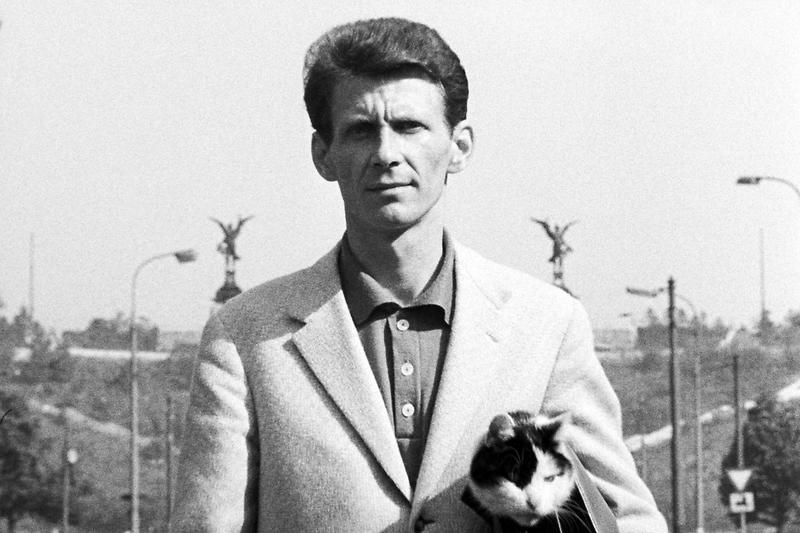
POSTAVA K PODPÍRÁNÍ
JOSEF KILIAN

Jan Herold wanders through Prague, streets, palaces, long corridors and past discarded banners. He is searching for Josef Kilian, to whom he needs to deliver a message. Then he comes across a cat lender and takes a feline with him. When he wants to give it back, the shop has disappeared and Herold continues to wander through offices and waiting rooms – and past the empty hill on which a huge monument to Stalin sat, until recently.
After 1968, Pavel Juráček was one of the few directors who made no compromises with the new rulers. They prohibited him from working and pursued him into exile to Munich, where he had emigrated after signing Charter 77. However, they could not prevent him from recording everything on thousands of diary pages. In the meantime, the notes have found a publisher, just like Juráčeks never realized scripts. CF
Editor Pavel Hájek, Senior Manager of the Václav Havel Library in Prague, reads from the texts after the performance of JOSEF KILIAN and tells of the director who virtually ceased to exist after 1968.
DCP | S&W / B&W
Pavel Juráček
Jan Čuřík
Adolf Nacházel
Zdeněk Stehlík
Oldřich Bosák
Wiliam Bukový
Karel Vašíček, Consuela Morávková, Ivan Růžička, Jiří Stivín, Pavel Bártl
Bohumil Šmída, Ladislav Fikar
Filmové Studio Barrandov
NFA
Katerina Fojtova
Malešická 12
130 00 Praha 3
Czech Republic
katerina.fojtova@nfa.cz
www.nfa.cz
Pavel Juráček, Jan Schmidt - born in 1935, died in 1989 in Czechoslovakia. Screenwriter and director. He studied at the Prague FAMU and, like Miloš Forman or Jiří Menzel, was one of the representatives of the Czechoslovak New Wave. Only a few years after the Prague Spring he was banned from filming for life. He lived for several years in exile in Munich, but was not spared by the secret police there either.
KAŽDÝ MLADÝ MUŽ (1965)
ZVONY PANA HEJHULY (1969, TV short)
PŘÍPAD PRO ZAČÍNAJÍCÍHO KATA (1970)